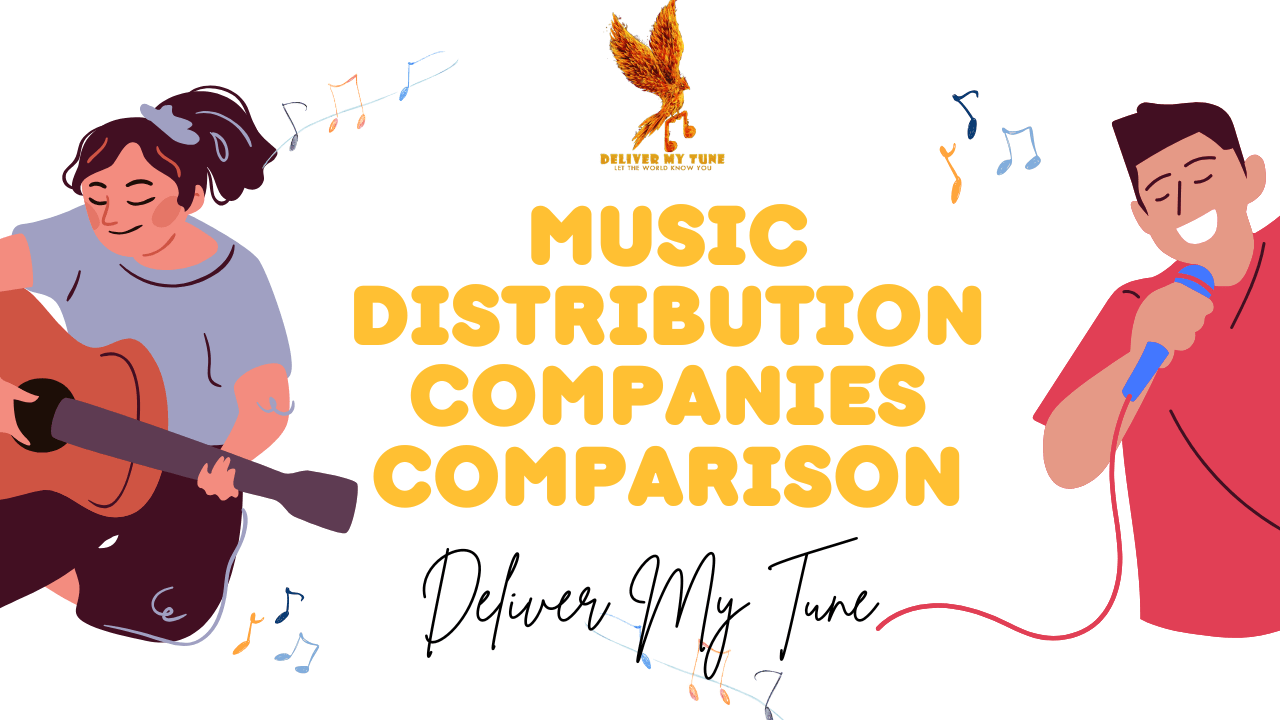Comprehensive Guide to Music Distribution Companies Comparison for Artists
Music distribution is the bridge that connects artists with their audiences across the world. In the era of digital platforms, selecting the right music distribution company is one of the most critical decisions for an artist. From getting your songs on Spotify and Apple Music to collecting royalties and analyzing listener trends, these companies handle everything.
The vast number of options can be overwhelming. That’s where a music distribution companies comparison becomes essential. In this blog, we’ll guide you through the top companies in the industry, helping you make an informed decision that matches your goals and budget.
Why Compare Music Distribution Companies?
The role of a music distribution company goes beyond simply uploading your tracks to streaming platforms. They can influence your reach, earnings, and even promotional success. Here’s why comparing them matters:
- Global Reach: Distribution platforms differ in the number and variety of streaming services they partner with.
- Royalty Splits: Some companies take a cut from your earnings, while others allow you to retain 100% royalties.
- Cost Effectiveness: Distribution fees vary widely, and understanding these costs can save you money.
- Additional Services: Many platforms offer tools like playlist pitching, analytics, and marketing assistance, which can be crucial for independent artists.
Comparing these factors ensures you get the best value for your investment while meeting your artistic and financial goals.
What to Consider in a Music Distribution Companies Comparison
Before diving into specific companies, it’s important to know what metrics to evaluate:
1. Pricing Models
- Flat Fees: A fixed yearly or per-release fee, often preferred for its transparency.
- Royalty Splits: Some platforms take a percentage of your revenue as payment.
- Subscription Plans: Unlimited uploads for a recurring fee.
2. Streaming Platforms Covered
Check how many and which platforms the distributor supports. Popular choices include:
- Spotify
- Apple Music
- Amazon Music
- YouTube Music
- Deezer
- Tidal
3. Royalty Collection
Does the distributor collect royalties from all revenue streams, such as performance rights and sync royalties?
4. Support and Scalability
As your career grows, you’ll need a distributor that can handle increased demands like playlist promotion, editorial pitching, and advanced analytics.
Top Music Distribution Companies Compared
1. TuneCore
Overview: TuneCore is a veteran in music distribution, offering services to artists worldwide. Their flat-fee structure is a significant selling point.
Features:
- Retain 100% of royalties.
- Distribute to over 150 platforms.
- Access to publishing and sync licensing opportunities.
Pricing:
- ₹999/year for a single.
- ₹2,999/year for an album.
Pros:
- Comprehensive analytics.
- Easy setup for beginners.
Cons:
- Higher upfront costs compared to royalty-based platforms.
2. Deliver My Tune
Overview: Deliver My Tune is an emerging player offering artist-friendly pricing and services tailored for independent musicians.
Features:
- Distribute across 100+ platforms.
- Royalty split of 70-85% based on the plan.
- Lifetime distribution with no recurring fees.
- AI mastering included for premium packages.
Pricing:
- Artist Plans start at ₹1,999.
- Label Plans (invite-only) at ₹5,999.
Pros:
- Transparent pricing with no hidden costs.
- Personalized support and guidance.
Cons:
- Regional limitations for certain services.
3. CD Baby
Overview: One of the pioneers in music distribution, CD Baby is known for its reliable services and added features like sync licensing.
Features:
- One-time fee per release.
- Physical distribution services available.
- Integration with publishing royalties collection.
Pricing:
- $9.95 for a single.
- $49 for an album.
Pros:
- Cost-effective for occasional releases.
- Excellent customer support.
Cons:
- Limited marketing tools compared to newer platforms.
4. DistroKid
Overview: DistroKid is a favorite for artists who release music frequently. Their subscription-based model provides value for prolific creators.
Features:
- Unlimited uploads for an annual fee.
- User-friendly interface.
- Playlist submission tools.
Pricing:
- $19.99/year for basic plans.
Pros:
- Affordable for high-output artists.
- Fast distribution times.
Cons:
- No free plan for testing the platform.
5. Amuse
Overview: Amuse offers both free and premium plans, making it a great choice for artists at any stage of their career.
Features:
- Free plan includes basic distribution.
- Premium plan unlocks faster payouts and marketing tools.
Pricing:
- Free for basic services.
- $59.99/year for premium.
Pros:
- Great for testing the waters without financial commitment.
- Sleek mobile app for distribution on the go.
Cons:
- Fewer advanced features in the free plan.
Features That Set Top Distributors Apart
AI Mastering
Platforms like Deliver My Tune include AI-powered mastering services. This ensures that your tracks meet professional audio standards without hiring an engineer.
Playlist Pitching
Tools for pitching to editorial playlists can greatly amplify your streams. CD Baby and Deliver My Tune provide these services as part of their packages.
Analytics and Reporting
Access to in-depth data is a must for artists looking to refine their strategies. Spotify for Artists and Apple Music insights are standard, but some distributors also offer proprietary analytics.
Editorial Support
Some platforms, like TuneCore, help pitch your songs to editorial playlists, giving you a chance to land on high-visibility playlists.
Tips for Choosing the Best Music Distribution Company
1. Understand Your Budget
For beginners, free platforms like Amuse may work, while established artists might prefer advanced tools offered by DistroKid or Deliver My Tune.
2. Consider Your Release Frequency
Artists releasing multiple singles a year may benefit from subscription-based platforms like DistroKid.
3. Look for Hidden Costs
Some platforms charge extra for features like UPC codes or expedited releases. Be sure to read the fine print.
4. Evaluate Additional Features
From royalty splits to promotional tools, ensure the company aligns with your career goals.
Emerging Trends in Music Distribution
Countdown Pages
Spotify’s Countdown Pages are revolutionizing pre-release promotion, enabling artists to generate hype before an album drops.
AI-Driven Services
AI mastering, marketing tools, and automated analytics are becoming standard across premium plans, simplifying the process for artists.
Focus on Long-Term Fandom
Beyond distribution, companies are shifting towards helping artists build loyal fanbases through interactive tools and exclusive content releases.
Final Thoughts on Music Distribution Companies Comparison
Choosing the right music distributor is not a one-size-fits-all decision. From affordable options like Amuse to feature-rich platforms like Deliver My Tune, each distributor caters to different needs. A careful evaluation of your goals, budget, and release strategy will help you make the best choice.
If you’re an artist looking to scale your reach while retaining control over your music, now is the time to invest in the right music distribution partner.
FAQs
- Which is the cheapest music distribution company? Amuse offers a free plan, making it the most budget-friendly option.
- What’s the best platform for frequent releases? DistroKid’s unlimited upload feature makes it ideal for artists releasing multiple singles or albums yearly.
- Can I switch distributors? Yes, but you’ll need to re-upload your tracks and transfer metadata to maintain streaming data.
Related Articles:
For further reading, explore these related articles:
- 5 Best Social Media Platforms for Musicians
- Why New Musicians Should Put Out a Single First
- Creating Music Covers: Essential Tips for 2024
For additional resources on music marketing and distribution, visit Deliver My Tune.






